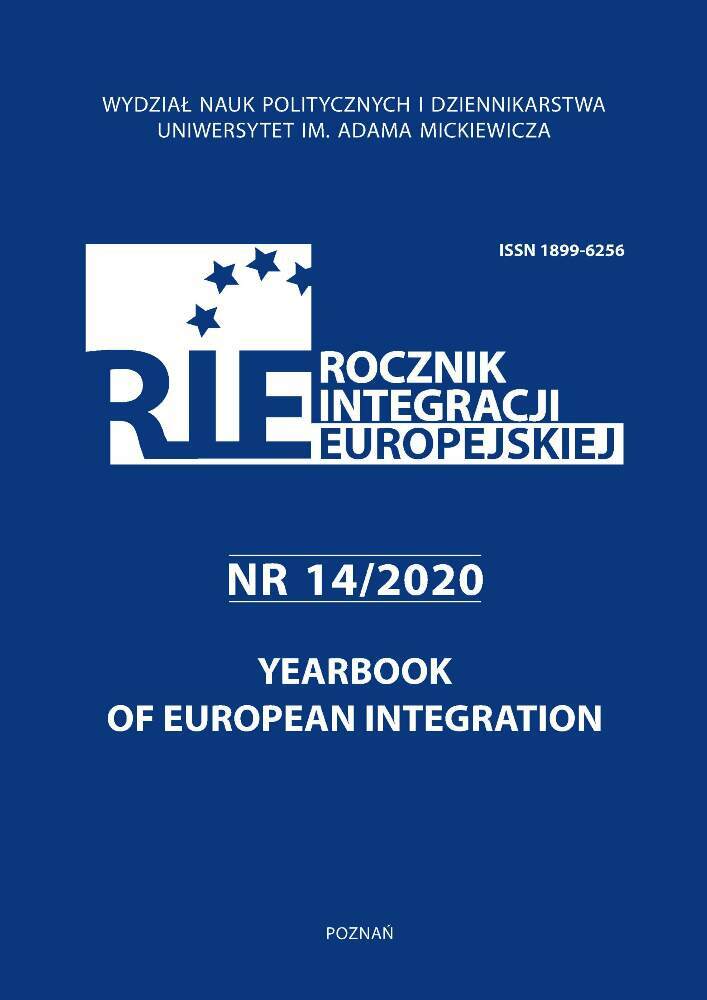Abstract
The purpose of this text is to pose a question about the Polish politics in a situation of possible deepening of (dis) integration tendencies within the European project. In fact, this work is an invitation to a debate on the process of defining country’s strategic goals, which may be come unavoidable in the event of decomposition phenomena in EU structures, for which many countries – including Poland – are currently not prepared. The development of new projects and models in this field may prove justified and necessary, as international institutions are less and less able to support the maintenance of peace, security and prosperity, and are increasingly associated with risks or losses in a broader sense. In the era of potential recession of supranational structures, the actions of bodies based on national legitimacy are more favourably viewed, perceiving these organisms as real entities that are capable of assuming responsibility for the fate of a given community in the crisis situations, which may mean distancing from the postulates of transferring competences to supranational level, for the sake of the Community response to transnational challenges.
References
Bauman Z. (1998), Prawodawcy i tłumacze, Warszawa.
Börzel T. A., Risse T. (2003), Conceptualizing the Domestic Impact of Europe, w: The Politics of Europeanization, red. K. Featherstone, C. M. Radaelli, Oxford University Press.
Börzel T. A. (2011), When Europeanization Hits Limited Statehood. The Western Balkans as a Test Case for the Transformative Power of Europe, KFG Working Paper Series, no. 30, September.
Copcea B. (2015), Integration And Inequalities In The Eastern European Countries, „Annals of ‘Constantin Brancusi’ University Of Targu-Jiu. Economy Series”, (4).
De Santis R., Cesaroni T. (2016), Current Account „Core-Periphery Dualism” in the EMU, „World Economy”, 39 (10).
Epstein R. A., Jacoby W. (2014), Eastern Enlargement Ten Years On: Transcending East – West Divide?, „Journal of Common Market Studies”, 52(1).
Ikenberry J. (2018), The End of Liberal International Order?, „International Affairs”, 94/1.
Jones E. (2018), Towards a Theory of Disintegration, „Journal of European Public Policy”, 25/3.
Krastev I., Holmes S. (2018), Explaining Eastern Europe: Imitation and Its Discontents, „Journal of Democracy”, July, https://www.journalofdemocracy.org/articles/explaining-eastern-europe-imitation-and-its-discontents-2/, 29.05.2020.
Krasnodębski Z. (2003), Demokracja peryferii, Gdańsk.
Magier M. (2012), Tożsamość peryferyjna. Tożsamość centrystyczna. Lokalne i globalne kłopoty z tożsamością, „Przegląd Politologiczny”, nr 1.
Matyja R., Peryferyjność – wyzwanie czy fatum?, „Ośrodek Myśli Politycznej”, https://www.omp.org.pl/artykul.php?artykul=330, 29.05.2020.
Niedźwiecki A. (2019), Brexit a liberalna teoria stosunków międzynarodowych, „Przegląd Europejski”, (1).
Niedźwiecki A. (2014), Exploring the European Constitutional Sphere. Centre – Periphery perspective, w: Europe in the time of crisis, red. S. Konopacki, Łódź–Kraków.
Plechanovová B. (2011), The EU Council enlarged: North-South-East or core-periphery?, „European Union Politics”, 12 (1).
Sedelmeier U. (2011), Europeanisation in new member and candidate states, „Living Reviews in European Governance”, vol. 6, no. 1.
Thomas B. C. (2013), Core–Periphery Relations in the European Union and the Role of Central Places in Europe with a Focus on Regional Policy in Britain and Germany, „European Review”, 21 (3).
Vachudova M. A. (2014), EU Leverage and National Interests in the Balkans: The Puzzles of Enlargement Ten Years On, „Journal of Common Market Studies”, 52(1).
Vollaard H. (2014), Explaining European Disintegration, „JCMS: Journal of Common Market Studies”, 52/5.
Wallerstein I. (1974), The Modern World System: Capitalist Agriculture and the Origins of the European World Economy in the Sixteenth Century, New York.
Zarycki T. (2007), Interdyscyplinarny model stosunków centro-peryferyjnych. Propozycje teoretyczne, „Studia Regionalne i Lokalne”, nr 1 (27).
Zarycki T. (2000), Politics in the periphery: the interpretation of political cleavages in Poland in their historical and international context, „Europe-Asia Studies”, vol. 52, no. 5.

